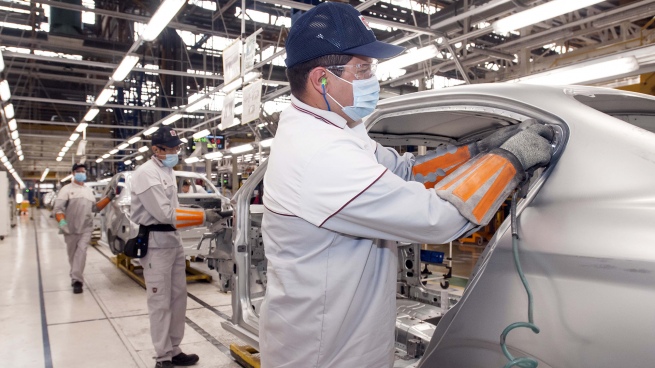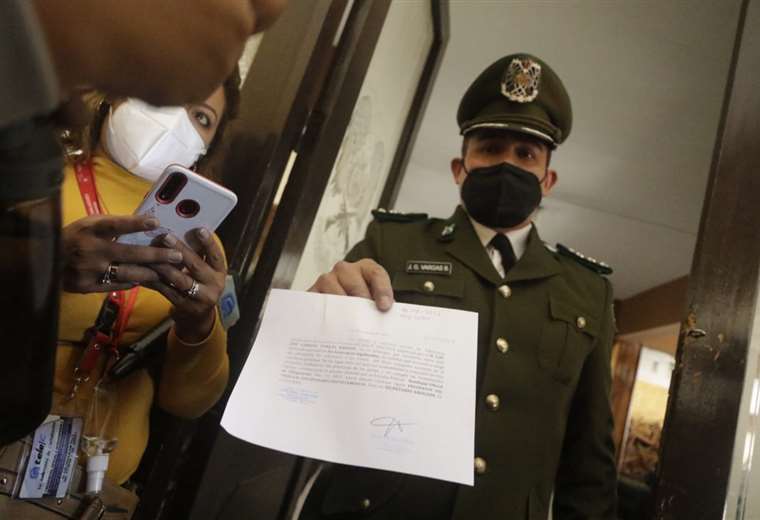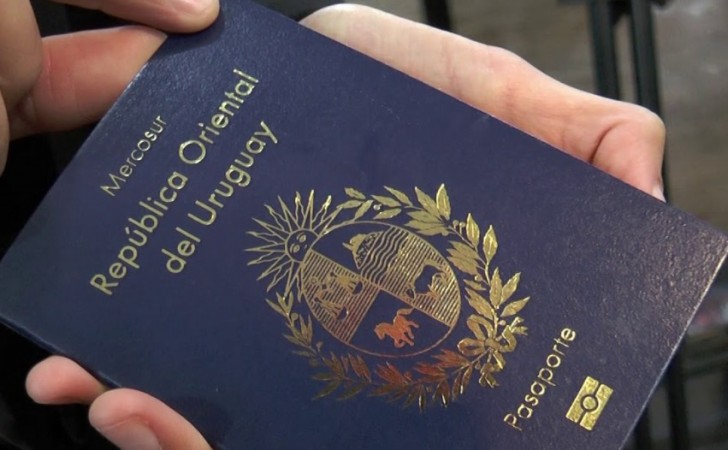The Minister of Economy, Sergio Massa, told the automotive companies that he will allow them to import tires if as of this Wednesday the workers’ conflict that paralyzes the three manufacturing companies in the country and that threatens to block the production of the entire sector, by rejecting that being “hostage to situations of inflexibility” will be validated.
Massa made these statements in the company of the Secretary of Production, José Ignacio de Mendigurenduring a meeting held this afternoon at the Palacio de Hacienda with representatives of automotive and auto parts companies, gathered in the Association of Automotive Factories (Adefa), the Association of Argentine Component Factories (Afac), the Association of Metallurgical Industrialists ( Adimra) and the Mechanics Union (Smata).
“We cannot be, in any way, hostage to situations of inflexibility, almost on a whim, and much less that a very small group puts 150,000 jobs, more than 1,000 auto parts companies, all the automotive terminals at risk,” said Massa.
For this reason, he added: “If, eventually, the conflict is not resolved, we are going to enable the manufacturing companies as emergency importers and we are going to enable them to import all the tires they need to supply the automakers.”
The minister added that for this “an emergency payment mechanism will be launched, so that the entire automotive and auto parts sector does not stop, and that they do not extort money from the sector on the basis of the conflict.”
The Single Union of Tire Workers (SUTNA) carries out a strike in claim of a series of union and wage claims.
This led to the three tire-producing companies temporarily suspend their activities. Also, that the automakers Ford and Toyota announced the stoppage in the manufacture of cars, to which Renault would join on Friday.
Massa told the businessmen that “we are available, that we understand the seriousness of the problem, above all things because the automotive and auto parts sector, both businessmen and workers and the entire value chain, helped us put in place an exemplary law to the Argentine economy.
“Second, because we understand that what is beginning to be put at risk are 145,000 jobs. Almost $40 million a day of loss is starting to be put at risk,” he warned.
New dialog instance
The management of Sutna, led by Alejandro Crespo, and the companies involved in the activity will resume negotiations this Wednesday in the Ministry of Labor in an attempt to resolve an extensive conflict of several months, after the fourth intermission agreed yesterday in the absence of an agreement.
The impact on the production chain
The Secretary of Industry, José Ignacio de Mendiguren, had previously expressed his “concern” about the referrals and the impact that the Union conflict in tire manufacturing companies can have throughout the automotive chain.
“We must have a little more humility, collaborate with the situation in the country, we have to recover the purchasing power of wages and for that we need to maintain the level of activity,” said the official in reference to the conflict in the automotive sector.
“We bet on growth, this industry grew by 35% and exports compared to 2019 rose by 70%,” he said.
The official pointed out before the conflict over salary and labor demands that “there is a list of 240 unions and the tire union, with good agreements, is in the 19th position of the best” paid.

“What worries me the most is the impact on the production chain because this directly affects the entire automotive chain. If we don’t have the tires, the whole line stops”said the Secretary in statements to National Radio.
Regarding the automotive sector, he said that it is a sector that “has been working very well” together with “the entire chain with the unions, the UOM, Smata, auto parts manufacturers, terminals.”
He also responded to a statement by the PRO president, Patricia Burllrich, about an apparent increase in suspensions in the industrial sector.
“There are two requests for suspensions in the industrial sector from July to September. Can we speak of a climate of union conflict with the industry? Today they are again 11 points above the pre-pandemic; that Bullrich government left us with 54% inflation and an unpayable debt”, closed De Mendiguren.

Ceruti’s word
The spokesperson for the Presidency, Gabriela Cerruti, called for the “sensibility” of both business leaders and trade unionists, within the framework of the conflict that crosses the tire industry sectorwhose representatives did not reach an agreement yesterday within the scope of the Ministry of Labor, which is why this morning the strike that has been paralyzing the factories continued.
“We call for common sense in all sectors. It is a conflict that has to be resolved because it is a very important sector for the industry and the economy in general,” Cerruti told Radio 10.
“We call for common sense in all sectors. It is a conflict that has to be resolved because it is a very important sector for the industry and the economy in general”Gabriela Ceruti
“It is a complex, delicate discussion. There has been no progress in recent meetings and there is a new morning. In total, 35 meetings have already been held in Labor, where the Government intervened. It is a conflict that was growing and was changing the scenario at the negotiating table,” said the spokeswoman.
After the meeting, the trade unionists ratified the continuity of the strike for an indefinite period of time and the blockades of the companies after more than seven hours of negotiations at the headquarters of the labor portfolio, on Leandro N. Alem Avenue at 600 in the city of Buenos Aires. Aires.
In this framework, an intermediate room was agreed in the talks until 2:00 p.m. on Wednesday, as certified in the minutes signed at the end of the long day by the national director of Labor Relations and Regulations of the labor portfolio, Gabriela Marcello.
for the conflict the three leading firms -Bridgestone, Pirelli and Fate- paralyzed their production while the Ford Argentina plant, located in the town of General Pacheco, stopped its two shifts affected by the lack of tires to equip the vehiclesspokesmen told Télam.
Industry sources also warned that a similar decision could be made by the Toyota automaker at its Zárate plant, in northern Buenos Aires, where the Hilux pick-up and the SW4 SUV are manufactured.
“They have to be able to reach an agreement so that the conflict is resolved as quickly as possible,” said the spokeswoman for the Presidency, adding: “This is a sector that cuts across all of the country’s economic growth.”
As the official explained, the conflict “began exclusively over the issue of salary but then the scenario changed.”
“With the blockades, the businessmen began to make other proposals and the union as well,” he said.
“We want the workers to have all the raise they can get and their rights, but we ask for a sensible space to be able to carry out the (forceful) measures without affecting the companies and everyone’s daily life, and reaching a reasonable agreement,” concluded Cerruti.
The voice of the value chain
the Association of Automotive Factories (Adefa), who met with directors of tire manufacturing companies and officials from the Ministry of Economy and the Secretaries of Industry and Commerce.
In addition to discussing the impact that the conflict has on this year’s production and export plans, the signs of predictability abroad were raised with concern at the meeting.
“At a time when the sector is working on the development of measures that help promote investment, increased production, exports and job creation, the radicalization of this type of action generates uncertainty in the export markets due to possible shortages and affects the investment plans in development”, they affirmed from Adefa.
Appealing to the “immediate unblocking” of the plants, the value chain expressed the need for “both parties to make their best effort so that, through dialogue at the meeting scheduled for tomorrow, Wednesday, this conflict can be resolved, which puts at risk more than 500 thousand families”.
Likewise, the value chain stressed the importance of allocating dollars for the inputs and materials necessary to sustain production and export levels, in order to generate foreign exchange that allows the sector to continue operating with its business model of specialization and complementation. industrial.


















